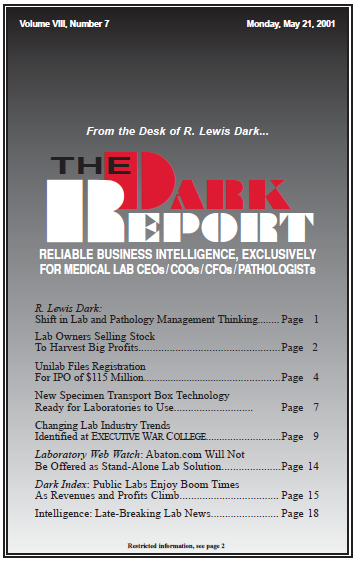CEO SUMMARY: Three huge stock sales involving the nation’s largest laboratories have been announced in recent weeks. If these stock sales are enthusiastically received by Wall Street investors, independent regional lab owners may benefit because of higher valuations for clinical laboratory companies. In particular, Unilab’s IPO will be seen as a benchmark of laboratory business …
Lab Owners Selling Stock To Harvest Big Profits Read More »
To access this post, you must purchase The Dark Report.


